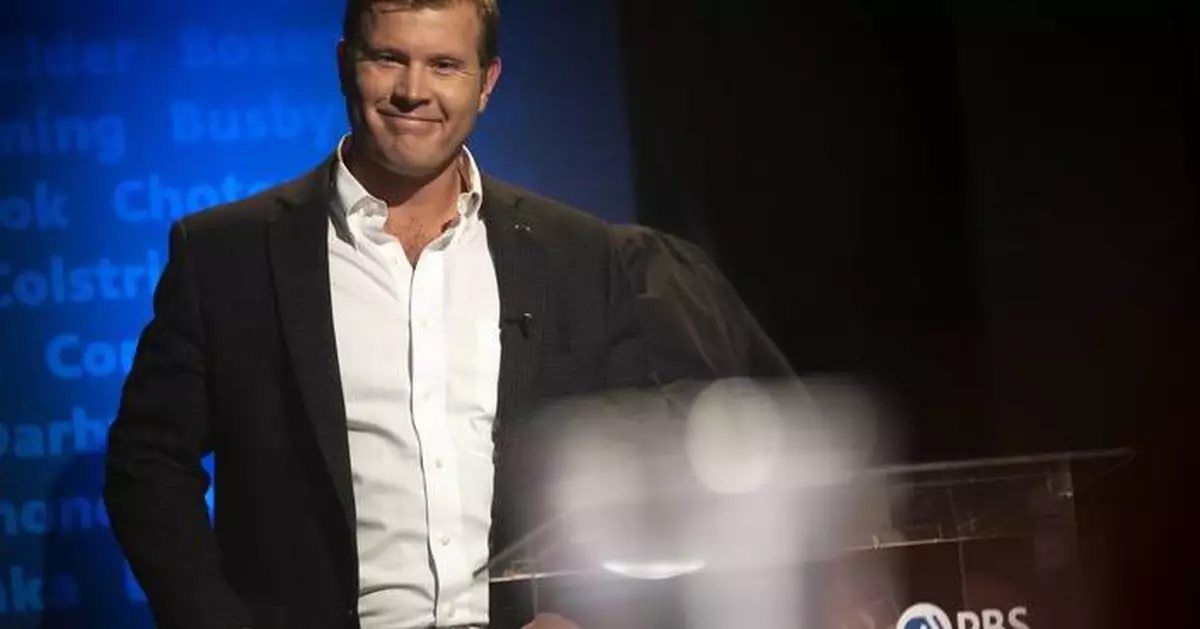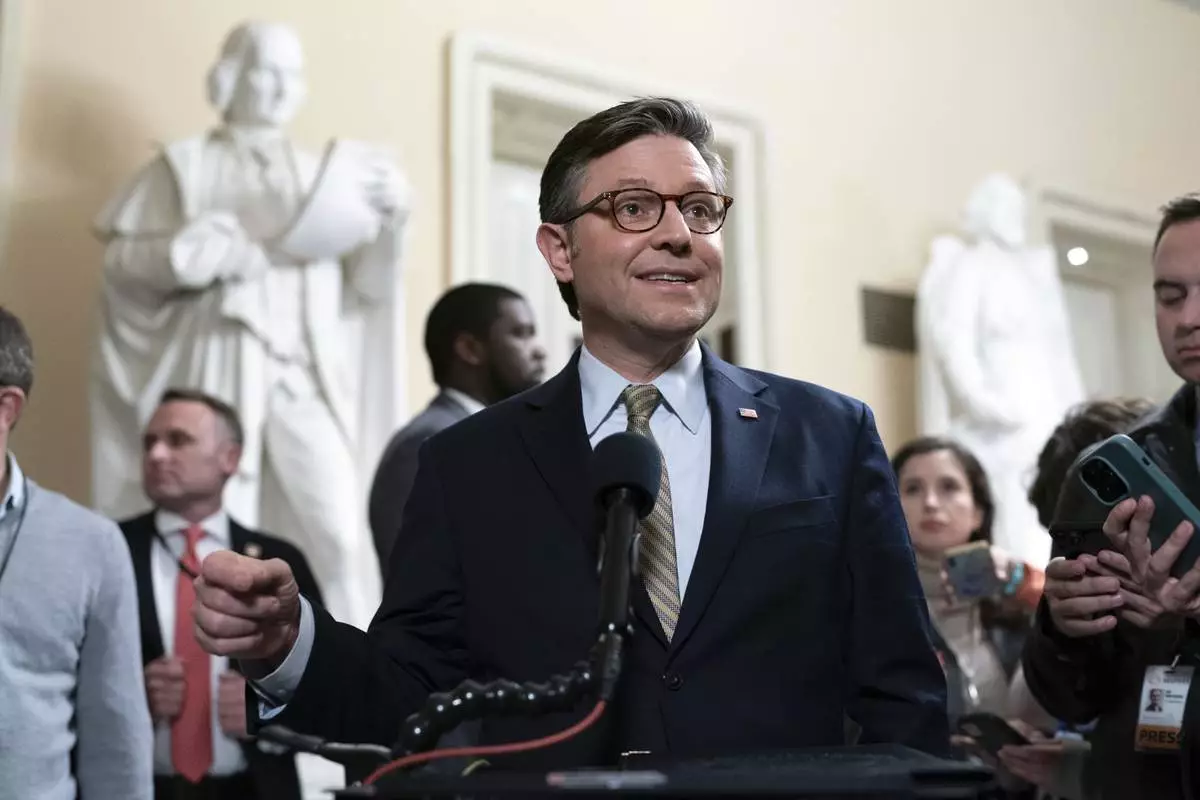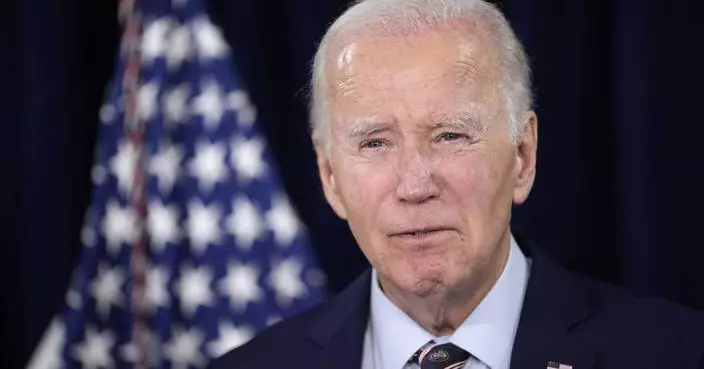BILLINGS, Mont. (AP) — During an October debate, Montana GOP Senate candidate Tim Sheehy denounced his Democratic opponent, Sen. Jon Tester, for ” eating lobbyist steak ″ while the Republican fought in Afghanistan.
But Sheehy himself had a taste for red meat and lobbying, according to emails obtained by The Associated Press. He combined the two in pursuit of government contracts that allowed his aerial firefighting company to rapidly expand over the past decade.
“I hope you enjoyed the steakhouse,” Sheehy wrote to Ryan Osmundson, the state Budget Director after a November 2021 meeting in Martinsdale, Montana. Sheehy went on to describe his company's aircraft as “ideal” for a dedicated, state-based fleet of planes to aggressively fight fires. There’s no indication the lobbying of Montana officials involved any wrongdoing by Bridger Aerospace or Sheehy.
Sheehy’s bid to prevent Tester from winning a fourth term is widely seen as one of the GOP's best chances at reclaiming the Democratic-controlled Senate. The Republican's campaign has leaned heavily on his military record and business accomplishments while routinely criticizing Tester for being the top recipient of lobbyist cash in Congress.
Sheehy's career as a U.S. Navy SEAL ended in 2014. By 2021, as CEO of Belgrade-based Bridger Aerospace, he was pressing Montana officials to put money into establishing a statewide aerial firefighting force that stood to benefit his company.
In subsequent months, a lobbyist working on behalf of Sheehy kept making the case for a dedicated Montana firefighting fleet, records show. And Sheehy met and communicated with top state officials, urging them to create the fleet under exclusive-use contracts to ensure the aircraft would be available when needed and not fighting fires in other states.
A director at a think tank for which Sheehy was a board member also called on Montana to direct those contracts to private firefighting companies like Bridger Aerospace.
“Admittedly, Bridger stands to benefit from the creation of a Montana Fire Force,” Sheehy wrote in an email to Amanda Kaster, Director of the Montana Department of Natural Resources and Conservation.
The agency’s existing contract with Bridger Aerospace calls for the company to receive $51,621 a day for each of its six “super scooper” planes made available for duty, plus $17,605 per hour of flight time. The planes scoop water from lakes or other bodies of water and dump it on wildfires from above.
By the spring of 2023, Kaster spoke in favor of legislation that sharply increased state spending on fighting wildfires. In July, a Billings aircraft company announced that it was awarded the first-ever exclusive-use aerial firefighting contract from Kaster's agency.
Bridger Aerospace over the past decade secured contracts for work in at least nine states, the federal government and several Canadian provinces, according to the company.
The contracts haven't been enough to avoid financial troubles. Sheehy's company — held up by his campaign as “a Montana success story” — has suffered persistent losses, a declining stock price and mismangement allegations.
Osmundson did not respond to messages seeking comment. A spokesperson for Kaster declined comment on Sheehy's communications with the agency but said it works with numerous entities, including contractors, to fight wildfires.
It’s uncertain if the financial challenges faced by the company, which Sheehy founded a decade ago with his older brother, will be lasting. The only analyst tracking the company has maintained a positive rating for Bridger Aerospace even as its stock price plummeted.
The Sheehy campaign declined to make the candidate available for an interview or to directly answer questions about his lobbying.
“Tim is proud of his work to expand Montana’s ability to fight wildfires, and he hears those efforts praised on the campaign trail from grateful Montanans who have had their homes and property saved from the devastation of wildfires by heroic aerial firefighters,” the campaign said in a statement.
Federal contracts made up 69% of Bridger Aerospace's 2023 revenue, according to a company presentation. Lobbyists in Washington reported spending $450,000 since 2021 on its behalf.
Tester, Montana's incumbent Democratic senator, brought up the Republican's federal lobbying during the Sept. 30 debate in Missoula after Sheehy’s remark about “lobbyist steak.”
“Tim Sheehy set up his own lobbying firm in Washington, DC. Why? So he could try to influence elected officials, try to take them out and feed them those steaks he’s talking about,” Tester said.
Tester ranks number one among U.S. lawmakers in lobbyist contributions, taking in $500,000 this election cycle, according to the nonpartisan group OpenSecrets. The Democrat ranked second when he last sought re-election.
Bridger Aerospace has reported net losses of more than $150 million since the company went public in January 2023. The company — along with an aerial surveillance spinoff that was sold for $350 million — made Sheehy rich, with net worth of between $73 million and $256 million, according to his financial disclosures.
He invested $1.5 million in his Senate bid, kickstarting the campaign in its early months. His nomination was sealed when his main Republican primary rival bowed out after Sheehy was backed by national party leaders, including former President Donald Trump.
A Sheehy spokesperson blamed the company’s fiscal problems on “smears” from Democrats and short-selling by investors looking to profit off the company’s troubles.
Democrats have pounced on Sheehy’s lobbying efforts and business troubles, hoping to debunk the candidate’s claims of success.
Their criticism of Sheehy’s private sector achievements echoes earlier attacks on two other Montana Republicans, U.S. Sen. Steve Daines and Gov. Greg Gianforte, who worked together at Bozeman software company RightNow Technologies. Democrats asserted in prior election cycles that claims by Daines and Gianforte of being job creators belied the company's role helping to outsource jobs overseas.
Sheehy resigned as Bridger CEO in July, saying he wanted to concentrate on the Senate race. He remains a top shareholder in the company, which lost 70% of its value over the past year, and said he would put his stocks into a blind trust if elected.
The company hopes to have a positive cash flow for the first time this year, said spokesperson Alison Ziegler. It posted record revenue of $67 million in 2023.
Much of that goes to paying interest for debt the company took on for aircraft acquired under Sheehy, who is considered to have a strong chance of toppling Tester after Republicans dominated recent elections in the state. In March an auditor raised the specter of potential bankruptcy.
“If that’s a Montana success story, I’d like to see a failure,” said Marc Cohodes, a Wall Street investor and short-seller living in Bozeman, Montana, who’s been a vocal critic of Sheehy’s business record.
The company’s problems leave Sheehy politically vulnerable, particularly among independent voters who are looking at his background rather than his party affiliation, said Jeremy Johnson, a political analyst at Carroll College.
The financial analyst who tracks Bridger Aerospace offered a rosier view in an August note to investors. Worsening wildfires would "dramatically increase demand” for its fleet of firefighting aircraft, wrote Aaron Moeller with Canaccord Genuity LLC. — echoing the company's claims that climate change would increase demand for its services.
Sheehy's expressed more skepticism of climate change as a candidate, repeating Republican talking points that “ the climate is always changing ” and warning of a liberal “climate cult " that will hurt the energy industry through more regulations.
Moeller rated the stock favorably in mid-August as a “buy.” The price has since dropped about 30%.

A firefighting aircraft known as a "Super Scooper" is seen inside a Bridger Aerospace hangar at Bozeman Yellowstone International Airport, Oct. 27, 2022, in Belgrade, Mont. (AP Photo/Matthew Brown)
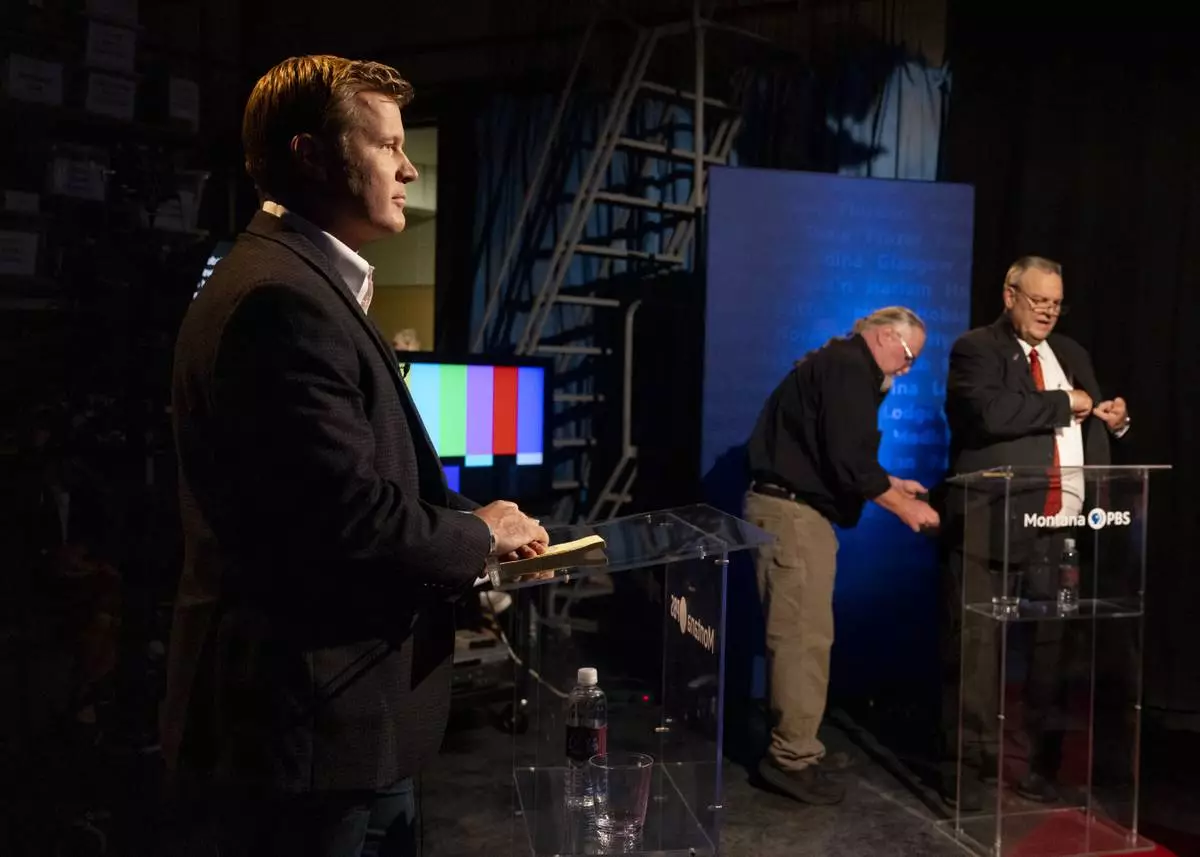
FILE - Tim Sheehy, left, prepares to debate U.S. Sen. Jon Tester, right, on campus at the University of Montana in Missoula, Mont., Sept. 30, 2024. (Ben Allan Smith/The Missoulian via AP, file)

Firefighting aircraft known as "Super Scoopers" are seen inside a Bridger Aerospace hangar at Bozeman Yellowstone International Airport, Oct. 27, 2022, in Belgrade, Mont. (AP Photo/Matthew Brown)
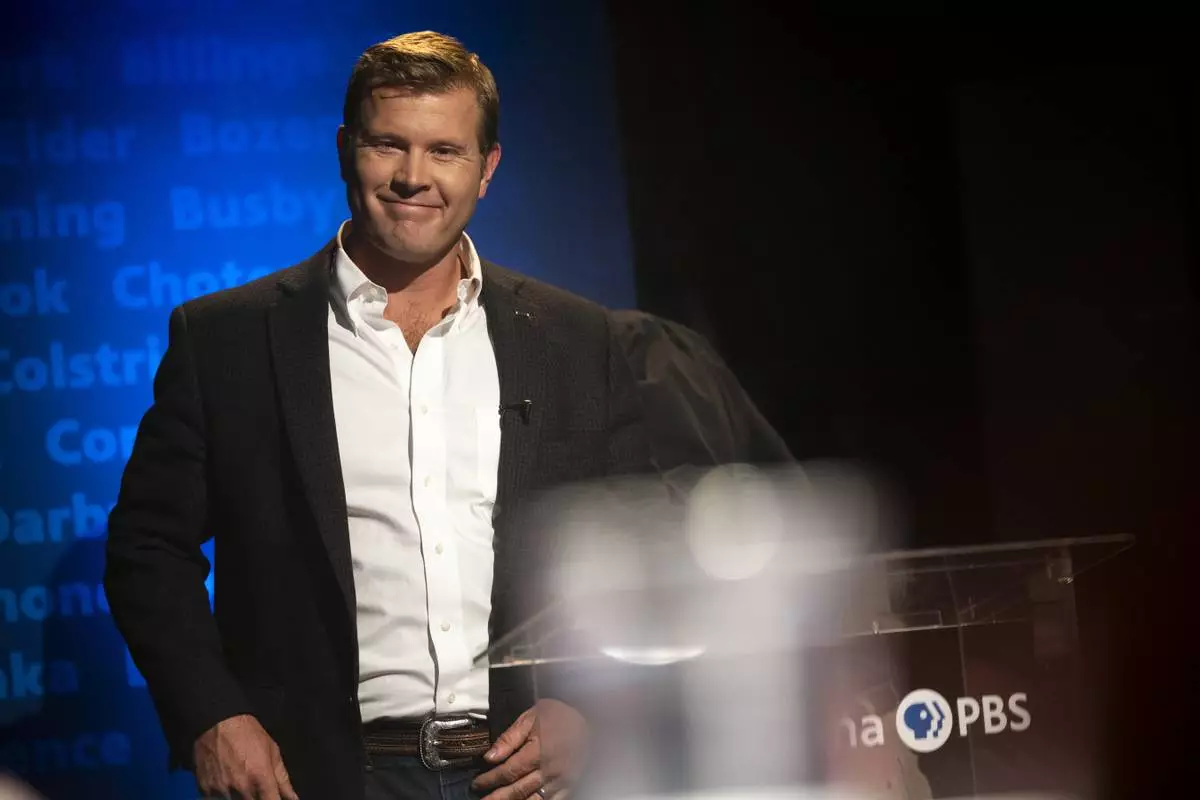
FILE - Tim Sheehy prepares to debate U.S. Sen. Jon Tester on campus at the University of Montana in Missoula, Mont., Sept. 30, 2024. (Ben Allan Smith/The Missoulian via AP, file)


